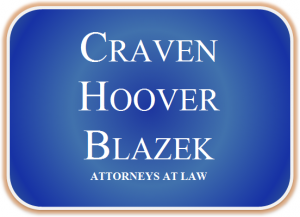Personal injury cases are highly complex since they involve the law. Such cases are made even more complex when accidents are so severe, they can lead to permanent losses or even wrongful deaths. This leads many to wonder whether or not personal injury cases are criminal matters. Although it would seem reasonable to assume that an accident that leads to another person’s death would result in someone being criminally penalized, it is not always the case. In fact, numerous personal injury lawsuits are civil matters and do not involve crimes being committed.
Continue reading to learn the fundamental differences between criminal and civil law, as well as, how to make a personal injury claim for compensation after being negligently injured in an accident.

Criminal Legal Matters
Criminal law involves crimes against the state, government, or society in whole. Criminal violations, like felonies and misdemeanors, are subject to state and federal punishment, therefore, guilty person’s face jail time, governmental fines, and more. In criminal law, the burden of proof shifts to a more complex principle. It is always up to the state prosecutors to provide evidence in order to prove that a defendant is guilty.
All people are innocent until proven guilty, so the defendant has no burden of proving their own innocence at all in a criminal case. There are a few exceptions to this rule, in the case of insanity claims and self-defense claims. The state has the responsibility of proving “beyond a reasonable doubt” that a defendant is guilty of the crime in question. Beyond a reasonable doubt that a defendant is guilty for a jury to hand down a guilty verdict is a very high bar for a prosecutor to meet.
Civil Legal Matters
In contrast to criminal law, civil law is the area of the American legal system that manages disputes or wrong-doings between private parties, rather than the state, government, or society as a whole. A common example of such cases involve injuries. If someone is wrongfully injured by another person demonstrating negligence or malicious intent, they can ask the courts to decide who is at-fault and if the negligent party should pay remuneration to the injured person. The same goes for family law and divorce cases, disagreements over property ownership, breach of contracts, wrongful terminations, and more.
Anyone found guilty of a civil matter or infraction will not be subjected to jail time, government fines, or capital punishment. Instead, most civil litigation cases end with a negligent party being order to compensate the injured party for their losses and any additional damages caused by the defendant’s negligence. Recompense is often times paid by the defendant’s insurance provider, but sometimes, they must pay out of pocket if they did not have insurance, for example. If they have no money, assets, or insurance, an injured person may not receive any recompense, even if it is court-ordered, and even if ordered to pay by a court, discharge of the obligation in bankruptcy can still be a high probability.
As for burden of proof, civil cases and criminal cases differ greatly. In civil law, the plaintiff has the burden of proving their damages and the negligent act of the opposing party be a more likely than not standard, which is much lower than the beyond a reasonable doubt standard in a criminal manner. The defendant has the burden of proof regarding and defenses they assert in the civil matter. In a civil case, a plaintiff and a defendant must hire and pay for their own attorney, or choose to defend themselves. Only in criminal cases will the state offer a lawyer for free. However, in a civil matter, because most defendants have insurance, the insurance company will hire and pay the defense attorney fees and expenses.
Get Trusted Advice Today

Personal injury cases are highly complex and require professional legal representation. Talk to your trusted personal injury attorney to learn more about your particular claim, including which course of action best meets your needs for compensation and justice. Start by calling the Law office of Craven, Hoover, and Blazek P.C. at 317-881-2700 to schedule a free initial consultation. Our experienced Indiana accident lawyers, Daniel Craven, Ralph Hoover, and Keith Blazek, are ready to recover the full and fair compensation you deserve.
